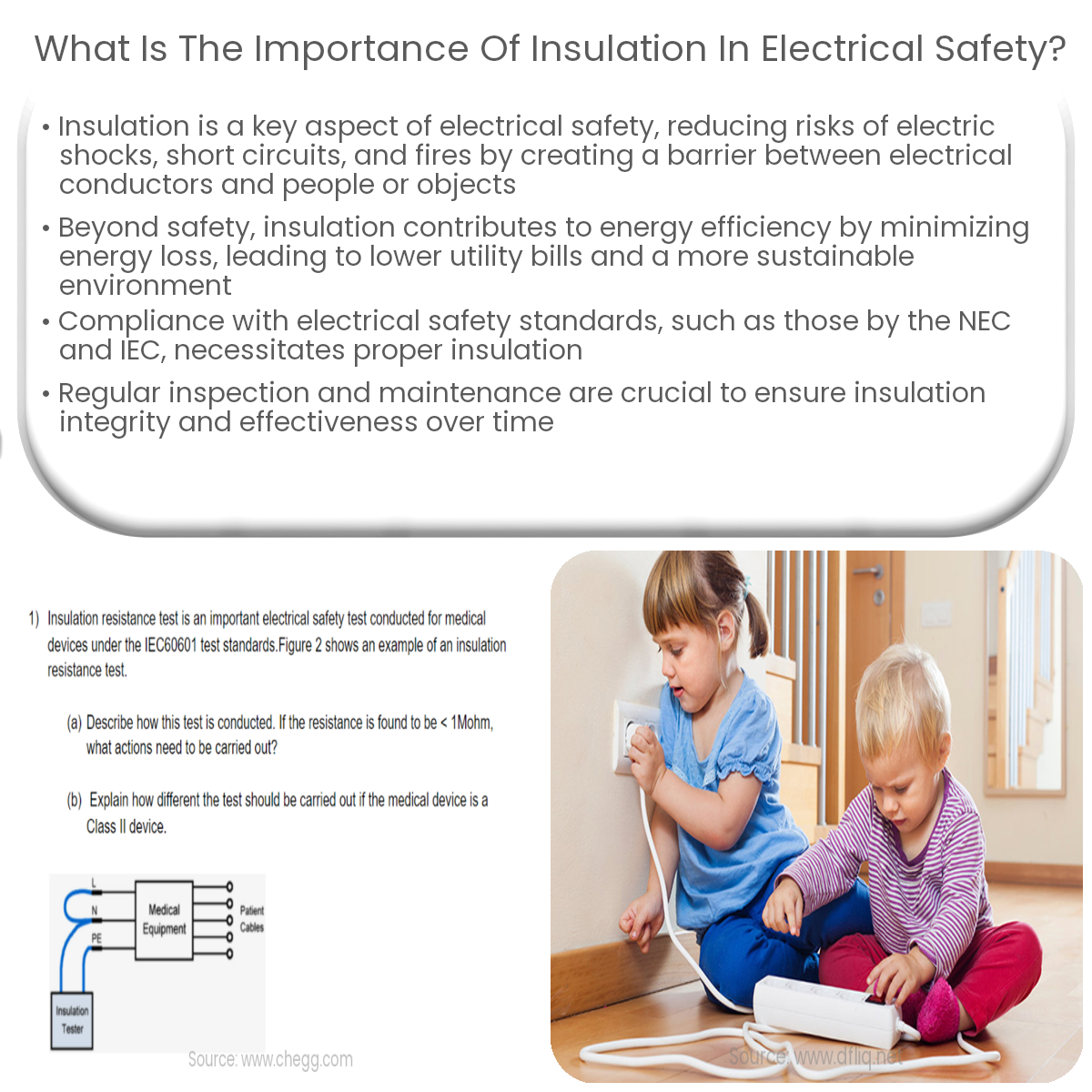Insulation is crucial in electrical safety as it prevents electric shocks, short circuits, fires, reduces energy loss, and ensures compliance with standards.
The Importance of Insulation in Electrical Safety
Insulation is a critical component of electrical safety, providing a barrier between electrical conductors and people or objects. It prevents electric shocks, short circuits, and other hazards associated with electrical systems. In this article, we will discuss the importance of insulation in ensuring electrical safety.
Preventing Electric Shocks
One of the primary functions of insulation is to prevent electric shocks. Insulation materials, such as rubber, plastic, or ceramic, are poor conductors of electricity, which means they do not allow the flow of electric current. By covering electrical wires and conductors with insulation, the risk of accidental contact with live conductors is minimized, reducing the likelihood of electric shocks.
Preventing Short Circuits and Fires
Insulation helps prevent short circuits by keeping electrical conductors separated from one another. When the insulation is compromised or damaged, conductors can come into contact, resulting in a short circuit. Short circuits can cause fires, damage to electrical equipment, and system failures. By ensuring proper insulation is in place, these risks can be significantly reduced.
Reducing Energy Loss
Insulation also plays a role in energy efficiency. Poor insulation allows for energy loss through heat transfer or leakage currents, leading to increased energy consumption and higher utility bills. Proper insulation helps maintain the desired temperature in heating or cooling systems, reducing energy waste and contributing to a more sustainable environment.
Ensuring Compliance with Standards and Regulations
Electrical safety standards and regulations require proper insulation for electrical systems. These guidelines, such as those provided by the National Electrical Code (NEC) and the International Electrotechnical Commission (IEC), are designed to protect people and property from electrical hazards. Complying with these standards helps ensure electrical safety and can prevent costly fines or legal liabilities.
Maintaining Insulation Integrity
It is essential to regularly inspect and maintain electrical insulation to ensure its effectiveness in providing safety. Over time, insulation can degrade due to environmental factors, mechanical stress, or exposure to chemicals. Regular inspections and timely replacement of damaged insulation can help maintain a high level of electrical safety.
In conclusion, insulation is a vital component of electrical safety, providing protection from electric shocks, short circuits, and fires. By ensuring proper insulation is in place and maintained, we can promote a safer and more efficient electrical environment.




